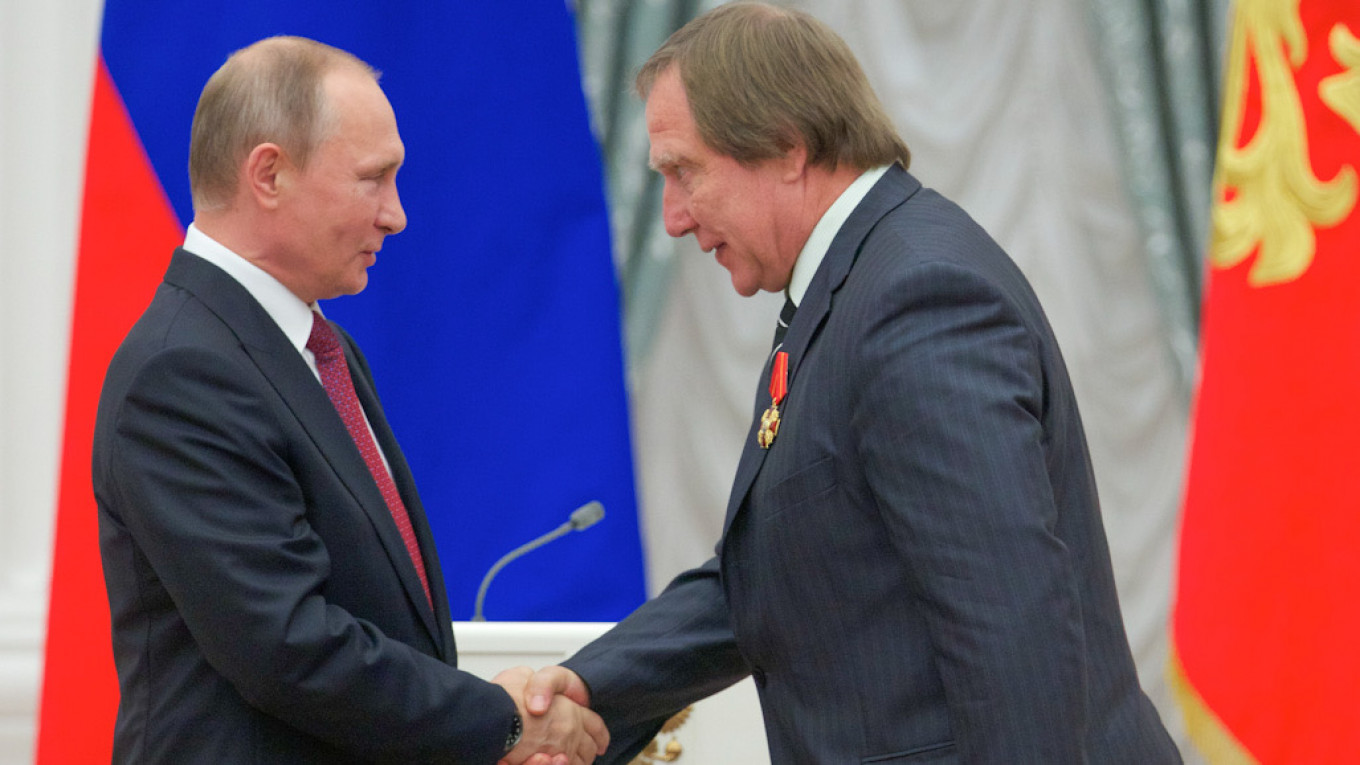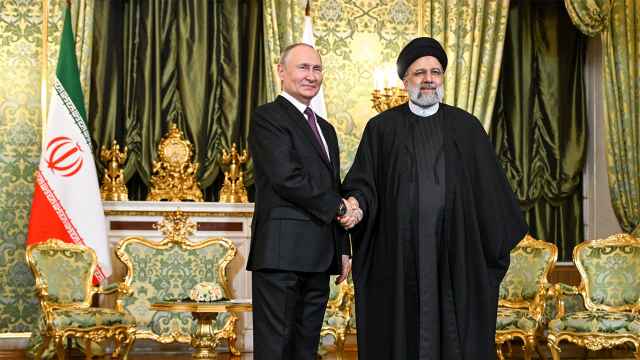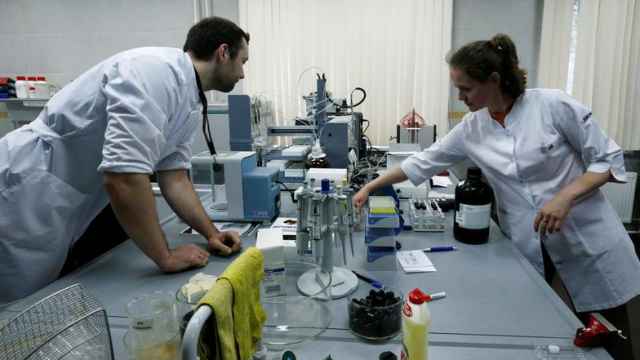The voice on the other end of the line belonged to the man who introduced Vladimir Putin to his ex-wife and is godfather to their eldest daughter. It was warm and friendly and suggested I ask my questions now, despite a pending meeting.
“I fear if you try me later you won’t reach me,” Sergei Roldugin said.
The congeniality caught me off guard. Roldugin, 69, earned the moniker of the “secret caretaker” of Putin’s wealth after leaked documents in 2016 known as the Panama Papers showed that he had shuffled $2 billion through a web of offshore companies. Given that history, I had assumed he would respond coolly to further questions about his riches.
The most delicate one concerned a recent purchase by one of his foundations: a 1715 Stradivarius violin — one of the famed instruments made by master Italian luthier Antonio Stradivari — for over $20 million.
That Roldugin had bought a rare instrument was not surprising in itself. An acclaimed cellist who serves as the director of the St. Petersburg House of Music, founded at the behest of the Russian president, he already owns a $12 million Stradivarius cello.
But this purchase stuck out nonetheless. When I shared the figure with UK-based Tim Ingles, one of the world’s handful of private rare musical instrument dealers, he told me the sum was “certainly one of the highest, if not the highest ever paid for a Stradivarius.”
The transaction, from fall 2018, was spotted by William George, an analyst with U.S.-based Import Genius, which compiles a database of customs records. The data he sent me showed that one of Roldugin’s foundations had imported the instrument from Switzerland to Russia in 2018, as well as another four violins worth $6.5 million earlier this year.
Going by the name of Vozrozhdeniya Traditsii — or Revival of Traditions — the foundation, according to last year’s Russian Federal Tax Service records, has 2.1 billion rubles ($27.5 million) in assets, which it reports as musical instruments.
In our phone conversation, Roldugin explained that the foundation’s goal is to ensure that these instruments do not sit in vaults but are played by Russia’s most talented young musicians, especially those who compete in international competitions.
Roldugin had already made a version of this statement in the only previous report I could find about the purchase of the 1715 Stradivarius, on a local St. Petersburg television channel last spring.
“More and more, such things are closed up forever behind glass,” Pavel Milyukov, a Russian violinist who has been lucky enough to play the rare instrument, told the channel. “We are probably one of the last inhabitants of our planet who can not only see it, but also hear it.”
But how did Vozrozhdeniya Traditsii afford the Stradivarius?
“It’s partly from philanthropists, sponsors and the government,” Roldugin said of the money.
Then he added: “You know, I want to say that this isn’t just that we took money from our own pocket and paid. I collected this money for a long time, borrowed it, convinced people, and all my businesses worked on this. And now I am still a bit in debt.”
The explanation was not unlike previous answers about Roldugin’s reported wealth and how he has used it.
After the Panama Papers were published in 2016, Putin called the notion that Roldugin had billions of dollars “rubbish.”
“Almost all the money he has earned he spent on the purchase of musical instruments abroad and brought them to Russia. Expensive things,” the Russian president said in his annual live call-in show that year. “I am proud to have such friends.”
Four years later, Roldugin said he is lucky that Putin, whom he has previously described as “like a brother,” cares so much about his foundation.
“I have to say we got really lucky with our president,” the cellist said. “He often asks about our new talents and pays a lot of attention to our foundation. We are thankful and feel that our work is needed, and is in his interests.”
Then Roldugin had to run, and as we bid our goodbyes, he thanked me for my own interest in his foundation. An all-around pleasant conversation.
And yet, while it all felt transparent, of course it wasn’t really. Vague answers with hints of shadiness. Signs of grand wealth publicly available with no accounting for its provenance.
Or, as Denis Primakov, the former chief lawyer at Transparency International Russia who is now with Russian law firm Pen & Paper, puts it, it’s transparency by way of untouchability.
“Okay, so a journalist found out about this,” he said when I told him the story.
“The problem isn’t the information, it’s that nothing happens next,” Primakov continued. “Everything’s clear already. There’s nothing to hide. Why should they hide things if everything is already understood?”
A Message from The Moscow Times:
Dear readers,
We are facing unprecedented challenges. Russia's Prosecutor General's Office has designated The Moscow Times as an "undesirable" organization, criminalizing our work and putting our staff at risk of prosecution. This follows our earlier unjust labeling as a "foreign agent."
These actions are direct attempts to silence independent journalism in Russia. The authorities claim our work "discredits the decisions of the Russian leadership." We see things differently: we strive to provide accurate, unbiased reporting on Russia.
We, the journalists of The Moscow Times, refuse to be silenced. But to continue our work, we need your help.
Your support, no matter how small, makes a world of difference. If you can, please support us monthly starting from just $2. It's quick to set up, and every contribution makes a significant impact.
By supporting The Moscow Times, you're defending open, independent journalism in the face of repression. Thank you for standing with us.
Remind me later.







